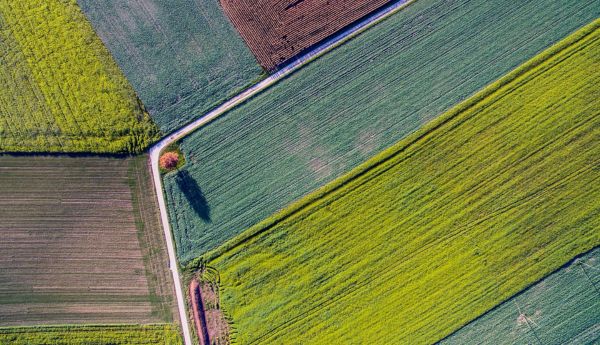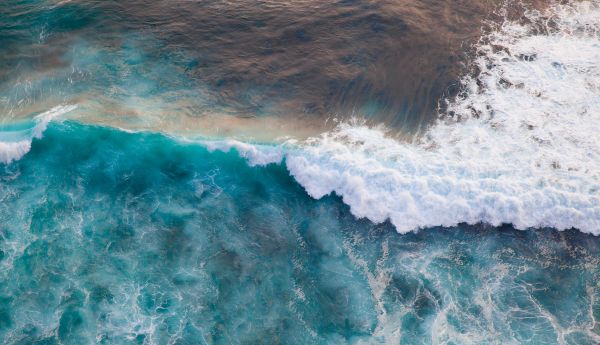Plastic Credits
Transforming Environmental Responsibility into Tradable Assets
Plastic credits, also known as plastic offset credits or plastic waste credits, are a financial instrument designed to incentivize the reduction, recycling, or proper disposal of plastic waste. The concept is similar to carbon credits, which are used to incentivize reductions in greenhouse gas emissions.
As a leading provider of sustainable solutions, Targray offers a comprehensive plastic credits program designed to empower businesses to tackle the global plastic waste crisis effectively. We facilitate the exchange of plastic credits, providing businesses with a tangible mechanism to offset their plastic footprint, and demonstrate their commitment to environmental stewardship while supporting initiatives focused on reducing plastic waste. Plastic credits contribute to the development of a circular economy by encouraging the responsible use of plastics and promoting closed-loop systems. Our expertise ensures that businesses can seamlessly integrate these credits into their sustainability strategies, aligning with global environmental goals.
How Do Plastic Credits Work?
Plastic credits offer a market-based solution to address environmental concerns by creating a platform where both businesses and individuals can actively manage their plastic consumption. Through these credits, companies and individuals can demonstrate accountability for their plastic usage by investing in projects and initiatives aimed at reducing plastic waste. This system encourages participation in efforts to combat plastic pollution while also fostering innovation and sustainability in waste management practices.
- Measurement: An organization or project measures the amount of plastic waste it prevents from entering the environment through activities such as recycling, waste collection, or plastic substitution.
- Certification: Independent organizations certify the amount of plastic waste prevented or recycled, verifying the claims made by the project or organization.
- Issuance: Once certified, plastic credits are issued to the organization or project based on the amount of plastic waste they have prevented or recycled. Each credit represents a specific amount of plastic waste prevented or recycled.
- Trading: Plastic credits can be bought and sold on the market. Companies or individuals looking to offset their plastic footprint can purchase these credits to compensate for their own plastic use.
- Verification: Periodic verification ensures that the plastic waste reduction or recycling activities continue to meet the standards required for credit issuance.
- Impact: The revenue generated from the sale of plastic credits can be used to fund further plastic waste reduction or recycling initiatives, creating a cycle of investment in sustainability.
THE ROLE OF COMPLIANCE IN PLASTIC CREDITS
Compliance plays a crucial role in the plastic credits market, ensuring transparency, credibility, and accountability in the issuance and trading of credits.
For businesses, compliance with environmental laws and regulations is not only a legal requirement but also a key aspect of corporate responsibility and reputation management. By participating in plastic credits programs that comply with relevant regulations and certification standards, companies can demonstrate their commitment to environmental sustainability while mitigating the risk of non-compliance penalties.
Plastic credits programs often operate within regulatory frameworks that outline criteria for credit certification, project eligibility, and credit trading. These regulations may include requirements for transparent reporting, third-party verification, and adherence to specific environmental performance criteria. Compliance with these standards ensures the integrity and credibility of plastic credits, providing assurance to buyers and investors regarding the environmental impact of their investments. Regulatory compliance helps foster trust and confidence in the plastic credits market, encouraging broader participation from businesses, investors, and stakeholders.
Through our comprehensive approach to compliance management, Targray helps businesses navigate the complexities of plastic waste reduction initiatives, maximize the effectiveness of their sustainability investments, and drive positive environmental outcomes.
COMPLIANCE CONSIDERATIONS
CO2 Emissions Reduction Projects
Our experts excel in identifying and supporting initiatives that lead to significant CO2 emissions reductions. By investing in and advising on projects with a measurable environmental impact, we empower our clients to make meaningful contributions to a greener future.
Low-CI Fuel Production and Import
Recognizing the pivotal role of low-carbon intensity fuels in reducing overall environmental footprint, we facilitate the acquisition of Plastic credits through the production or import of such renewable fuels. Our strategic guidance ensures compliance while promoting the use of cleaner energy sources.
Transformative End-Use Fuel Switching in Transportation
As trusted industry experts in transformative end-use fuel switching, we guide our clients in making the transition to sustainable transportation fuels and bio-based feedstock. This not only aligns with compliance requirements but also positions businesses at the forefront of the sustainable mobility revolution.
Related Content

CFR Credits
Our Canada CFR credits pricing and trading solutions help Canadian market participants of all sizes meet compliance requirements reliably and cost-effectively.

EU Allowances
As a strategic partner, we leverage our experience in European environmental markets to help customers unlock the full potential of EU ETS compliance through EU allowances trading.

RECs
Trusted by energy project developers, utilities, equipment manufacturers, and energy retailers globally, our REC supply solutions are designed to empower organizations in meeting compliance requirements.
I-REC
As a registered supplier of international renewable energy certificates (I-RECs) with extensive experience in environmental commodities trading, we are able to help renewable energy markets.
